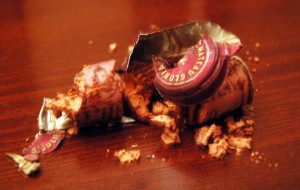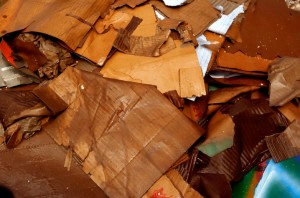If you hang around wine people long enough, you’ve probably heard the term “corked” thrown around once or twice. Way back when, I thought corked meant that you didn’t finish the bottle, so you put the cork back in to save the rest for later. I thought a corked wine meant that I was showing self-restraint when tempted to drink the entire bottle! This was not the case. To save you from the same embarassment, let’s look at what a corked wine is and how to identify it.
What is a corked wine?
First of all, a corked wine is not a good thing. It means that the wine has been contaminated with cork taint (get your mind out of the gutter, this is a real thing). Remember that cork is a natural product and sometimes various microorganisms and fungi grow in them.These contaminated corks create a nasty chemical compound called TCA (2,4,6- trichloroanisole). When a cork with TCA comes in contact with the wine, it contaminates it and ruins the entire bottle.
We call this a corked wine because it’s much easier to say “the wine is corked” instead of “this wine has been contaminated with 2,4,6 trichloroanisole”!
How do you know if a wine is corked?
Before you freak out and think that all your expensive wine may be ruined by their corks, you should know that cork taint is actually quite uncommon (occuring in less than 5% of corks) and is also very easy to identify thanks to a really distinct smell and taste.
Corked wines smells like damp, soggy, and rotten cardboard. It’s also described as smelling like a dank moldy basement, a wet newspaper or a wet dog. If you take a whiff and smell any of these then the wine is corked.
If you take a sip of a corked wine, the taste will be flat and dull. The TCA neutralizes the fruit and cuts the finish in the wine, leaving you with a shallow, astringent, flavor.
Believe me, you’ll know when you smell and taste a corked wine.
What should I do if my wine is corked?
If you’re at a restaurant and the sommelier serves you a wine that you think is corked, politely tell him, “I think this wine may be corked. Will you try it please?” The somm will then smell and taste the wine. If it is indeed corked, it will be immediately obvious to the sommelier and they will bring you a new bottle at no charge.
If you’ve purchased from a retailer and you still have the receipt, bring it back with the unconsumed wine still in the bottle. The retailer should gladly provide you a refund since the winery or distributor will pay for the bottle thanks to you bringing in the evidence of the corked wine.
If you’ve purchased from a retailer and you don’t have the receipt, contact the winery directly and explain the situation. Most of the time they will send you a replacement bottle free of charge!
Until next time, stay away from those corked wines!


Leave a Reply